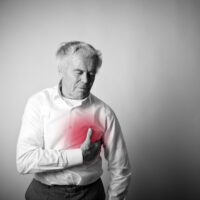Here’s What You Need to Know about Parkinson’s Disease
According to a report by the American Parkinson Disease Association (APDA), nearly a million people living in the country have Parkinson’s disease. This disorder of the central nervous system severely affects one’s movement and balance, usually starting with hand tremors. Stiffness, loss of balance, and rigidity are some of its other common symptoms.

What is Parkinson’s disease?
Parkinson’s disease is an ailment that has a negative impact on the functioning of the human brain. It spreads slowly because of which an early diagnosis becomes nearly impossible. It comes gradually with a mild disturbance in movements, and slowly it starts impacting other activities like sleep, speech, and even the ability to think. Its other symptoms like the rigidity of muscles, problems with digestions are too vague because of which patients may get an inaccurate diagnosis in the early stages.
Impact of Parkinson’s disease on the human body
The main effect of Parkinson’s disease is the way it decreases the amount of dopamine in the body. Dopamine is a hormone that helps in the controlling motor and non-motor functions in our body. If the body has a dopamine deficiency, it leads to stilted walking, movements that are uncontrollable as well as tremors. There are many other symptoms that are less noticeable like loss of smell and constipation. Let’s have a look at a few details regarding the life expectancy of patients who have Parkinson’s disease.
Appearance of symptoms
According to medical studies, by the time a patient begins to exhibit the key symptoms of Parkinson’s disease, almost 60 to 70 percent of the body’s dopamine will be gone. This lack of dopamine will hamper all kinds of functions in the body.
However, just because a patient starts exhibiting the symptoms of this condition doesn’t mean that they are out of all options. At such times, a patient’s mental strength matters a lot. Patients with Parkinson’s disease must try to stay positive, regardless of the circumstances.
One can live with the disease and expect their every day to stay normal. Therefore, if a patient with Parkinson’s disease has a strong will to live life in a healthy way, their life expectancy could be the same as the life expectancy of any other healthy individual.
Effects of age
Most of the people who get diagnosed with Parkinson’s disease are over the age of 60. However, that does not mean that this condition does not affect young people. Only 10 percent of the total cases get diagnosed at an early age. When a patient is particularly old or has other medical conditions, then they may get very discouraged to know that they have Parkinson’s disease. The patient may lose hope and give up. However, at such times, friends and family members need to encourage them and help them stay positive. Today, various treatment options are available to help with the symptoms of this ailment. So, in this way, a patient’s family can help them increase their life expectancy even after they get a diagnosis of Parkinson’s disease.
Due to less dopamine in the body, the patient may not be capable of walking normally. However, healthy interaction with people and others suffering from the same condition can boost their psychological confidence.
Varying emotions
Not all patients react well to the knowledge of getting diagnosed with Parkinson’s disease, which currently has no cure. At such times, doctors focus on the mental and physical health of the patient. They would hope that with adequate psychological and moral support, people get over the news of the diagnosis and start working on alleviating the symptoms of the condition to some extent. Thus, the life expectancy of a patient with Parkinson’s disease will rise significantly if they maintain a positive frame of mind. It is normal to feel overwhelmed by the diagnosis, but one needs to get over the feeling to try and find ways to alleviate the symptoms of the condition.
Brain surgery and medications
Regular medication can help a patient only to a certain extent. After that, a patient’s day to day life is disturbed significantly due to the symptoms of this condition. At such times, patients with Parkinson’s disease can opt for brain surgery due to which their life expectancy increases manifold.
By taking medicines regularly, patients in the early stages of this condition can live their life more or less normally due to a reduction in the intensity of these symptoms.
It’s not always easy to cope up with a disease that is not only life-threatening but also not curable. It will always lead to fear in the minds of patients. However, the only way to combat this fear is to have the confidence and courage to living life as if nothing has changed. By not accepting defeat, a patient with Parkinson’s disease can hope to maximize their life expectancy. They can also continue with medication and the right lifestyle to minimize the impact of this condition.











